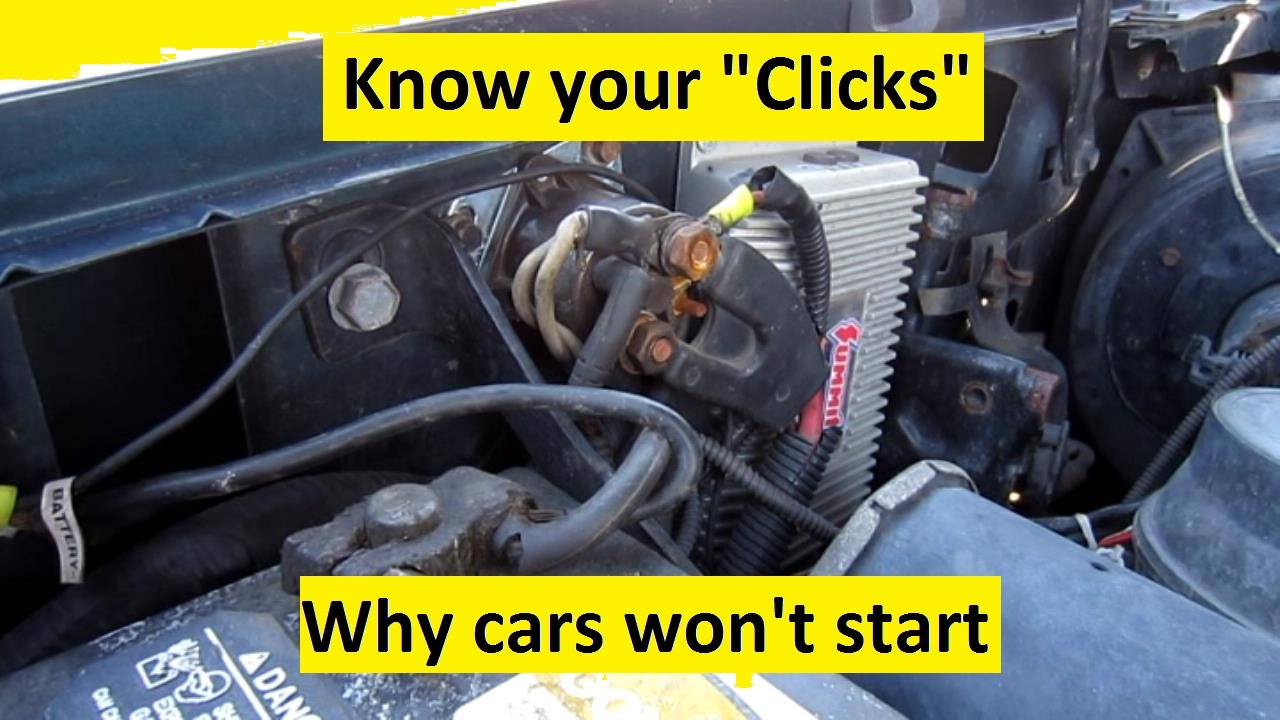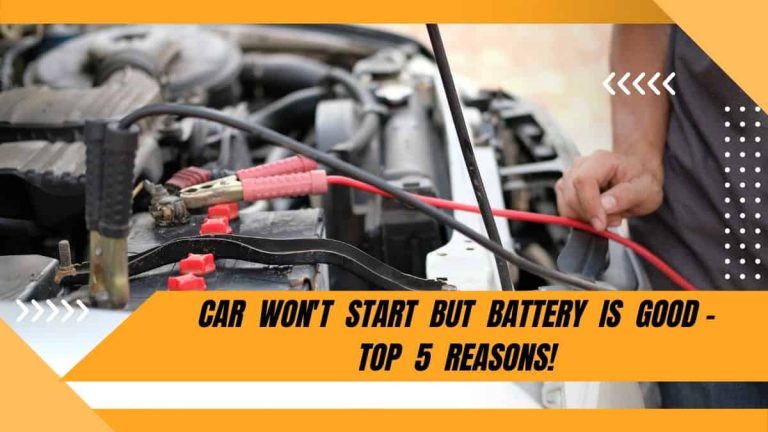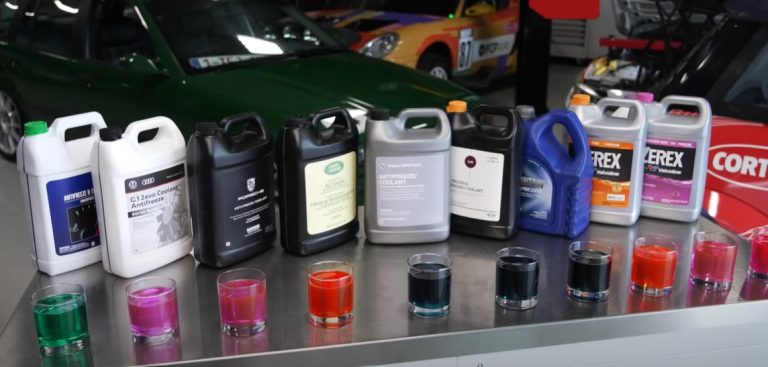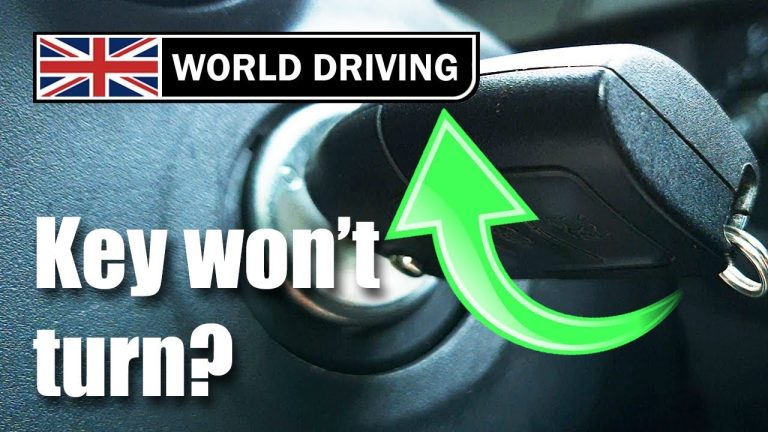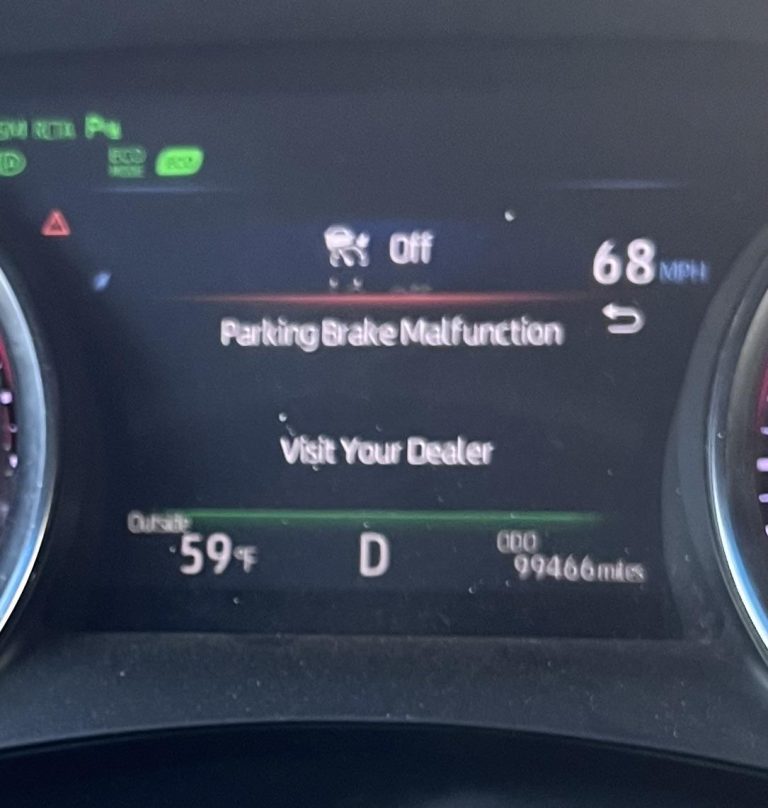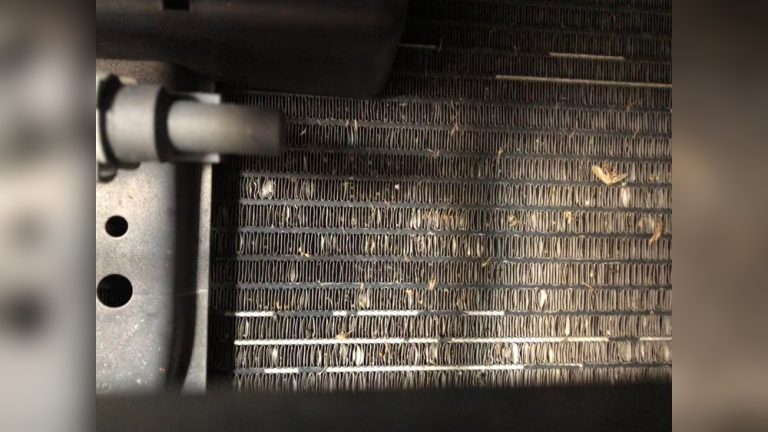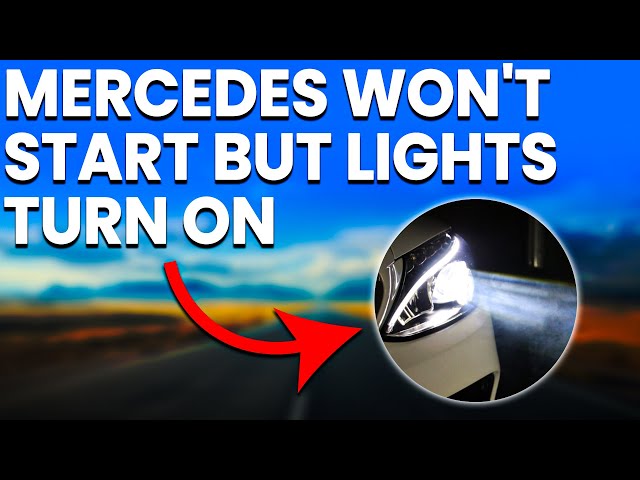Car Making a Clicking Noise When Trying to Start: Quick Fixes
A car making a clicking noise when trying to start usually indicates a weak or dead battery, corroded battery terminals, or a faulty starter motor. It may also result from a bad ignition switch or poor electrical connections. Check the battery and cables first before seeking further diagnosis.
Is it a minor glitch, or could it be something more serious? Before you let the worry take over, let’s dive into what might be causing that unnerving sound and how you can address it. Understanding the problem could save you time, money, and a whole lot of stress.
Stick around, because this might just be the solution you’ve been searching for.
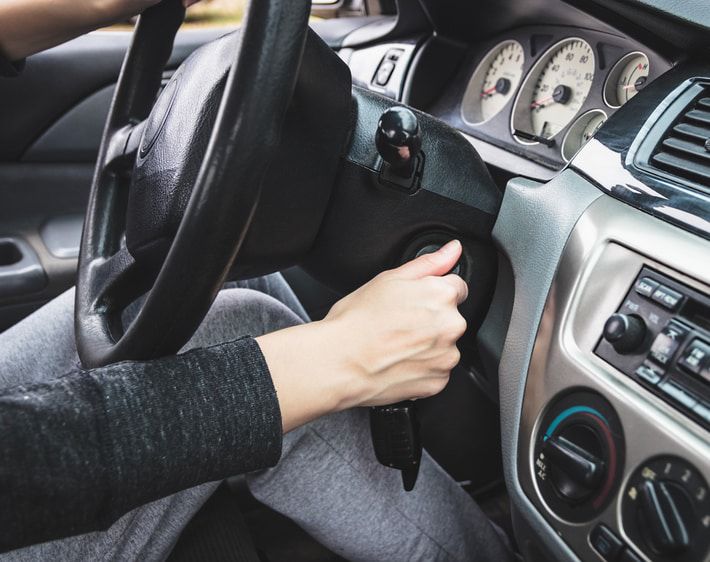
Credit: www.firestonecompleteautocare.com
Car Making a Clicking Noise When Trying to Start
Common Causes Of Clicking Noise
Hearing a clicking noise when trying to start your car is frustrating. It signals a problem that needs attention. Understanding the common causes can help diagnose the issue quickly. Here, we explore the typical reasons behind that annoying clicking sound.
Read more: Car Won’t Start But Lights Come on Clicking Noise: Fix Tips
1. Faulty Starter Motor
The starter motor cranks the engine when you turn the key. A faulty starter can cause a clicking noise. This happens because it fails to engage properly. If ignored, it might lead to a complete failure. This will prevent your car from starting.
2. Dead Or Weak Battery
A dead battery is a common reason for a clicking noise. The battery might not have enough charge to start the engine. A weak battery struggles to supply power. The clicking sound is a sign of this struggle. Checking the battery charge can quickly identify this issue.
3. Corroded Battery Terminals
Corrosion on battery terminals disrupts the flow of electricity. This can cause a clicking noise when starting the car. Cleaning the terminals might solve the problem. Ensure a good connection for smooth starting.
4. Bad Alternator
The alternator charges the battery while the car runs. A faulty alternator might not charge the battery properly. This can lead to a clicking noise due to low battery power. Testing the alternator can confirm if it’s the cause.
5. Loose Or Damaged Wiring
Loose or damaged wiring can interrupt the power supply. This interruption can cause clicking noises during startup. Inspecting the wiring can reveal any obvious issues. Repairing or replacing the wires can resolve the problem.
6. Faulty Solenoid
The solenoid sends power to the starter motor. A faulty solenoid might click but fail to start the engine. Replacing the solenoid can fix this issue. It ensures the starter motor receives the needed power.
Understanding these common causes can help you address the problem swiftly. If you’re unsure, consulting a professional mechanic is wise. This can prevent further damage and ensure your car runs smoothly.
Read more: Single Click When Trying to Start Car: Troubleshooting Tips
Battery Issues
Experiencing a clicking noise when trying to start your car? Battery issues could be the cause. Understanding battery problems can help you fix the issue quickly. A weak or dead battery often leads to clicking sounds. This noise indicates insufficient power to start the engine. Knowing how to identify battery troubles can save time and money.
Common Signs Of Battery Issues
The clicking noise is a primary sign. Other signs include dim headlights and electrical failures. Your car may struggle to start in cold weather. These signs point to battery issues needing attention.
Causes Of Battery Failure
Old batteries often fail. Most last three to five years. Extreme temperatures can damage batteries. Frequent short trips prevent batteries from fully charging. Corroded or loose connections disrupt power flow.
Testing The Battery
Test your battery if you suspect issues. Use a multimeter for accurate results. A healthy battery reads between 12.4 and 12.7 volts. Lower readings suggest problems.
Solutions For Battery Problems
Replace old batteries for reliable starts. Clean corroded terminals with baking soda and water. Tighten loose connections to ensure proper power flow. Charge the battery if it’s weak.
Starter Motor Problems
A clicking noise when starting a car often signals starter motor issues. This sound typically means the starter isn’t engaging properly. Addressing this early can prevent further damage to your vehicle.
Car making a clicking noise when you try to start it can be frustrating, especially if you’re in a hurry. This sound often points to a problem with the starter motor. Understanding what might be wrong can save you time and money. Knowing the basics helps you identify the issue and decide whether a simple fix or a trip to the mechanic is needed.
Starter Motor Not Engaging
The clicking noise might mean the starter motor isn’t engaging properly. This can happen if the gears within the starter aren’t connecting with the engine’s flywheel. Imagine trying to spin a gear that’s slightly out of alignment—it just doesn’t catch. This misalignment could be due to worn-out gears or an issue with the starter solenoid.
Worn Out Brushes
Inside the starter motor, brushes help conduct electricity. Over time, these brushes wear down, reducing their ability to transmit power. If your car clicks but doesn’t start, the brushes might be too worn to complete the circuit. Have you ever tried using a worn-out battery that just won’t charge? That’s similar to what happens here.
Weak Or Dead Battery
A weak battery might not give the starter enough power, causing that dreaded clicking sound. In many cases, the battery doesn’t have enough juice to turn over the engine. Before blaming the starter, check your battery. Is it old? Have you recently left the lights on? These could be easy fixes.
Faulty Starter Solenoid
The starter solenoid acts like a bridge between the battery and the starter motor. When it malfunctions, the connection fails, resulting in a clicking noise. This small component might be the culprit. Have you ever overlooked something small, thinking it couldn’t possibly be the issue, only to find it was? That’s often the case with solenoids.
Loose Or Corroded Connections
Corroded or loose connections can disrupt the flow of electricity. Inspect the wires leading to the starter for any signs of corrosion or looseness. Think about how a faulty wire can ruin your phone charging experience. The same principle applies here—clean and secure connections are crucial. By understanding these starter motor problems, you’re better equipped to tackle the clicking noise issue. Next time your car refuses to start, you’ll know where to look and what questions to ask. Have you experienced these issues before, and how did you resolve them? Share your insights in the comments below!

Credit: www.reddit.com
Faulty Ignition Switch
A clicking noise can be frustrating when starting your car. One common cause is a faulty ignition switch. This small component plays a crucial role in starting the engine. If it malfunctions, the engine won’t start. Instead, you might hear a clicking sound. Understanding the ignition switch’s role can help identify the problem.
What Is An Ignition Switch?
The ignition switch is a key part of your vehicle’s start system. It activates the electrical systems, allowing the car to start. When you turn the key or press the start button, the switch sends power to the engine. Without it, your car remains silent.
Signs Of A Faulty Ignition Switch
A faulty ignition switch shows several signs. One common sign is the clicking noise. This noise happens when the switch cannot send power to the engine. Another sign is the dashboard lights not turning on. If the lights stay off, the switch might be faulty.
Causes Of Ignition Switch Failure
Several factors can cause the ignition switch to fail. Wear and tear is a major reason. Over time, the switch components wear out. Dust and debris can also cause problems. They block the switch and prevent it from working. Electrical faults can also damage the switch.
How To Fix A Faulty Ignition Switch
Fixing a faulty ignition switch often requires professional help. A mechanic can diagnose the issue. They may clean or replace the switch. In some cases, the entire ignition system might need repair. Regular maintenance can prevent future problems.
Quick Fixes And Troubleshooting Tips
Facing a clicking noise when starting your car often points to battery or starter issues. Check the battery connections for corrosion. Tighten any loose cables. If the problem persists, testing the battery’s charge level is crucial. Consider consulting a mechanic if simple fixes don’t resolve the issue.
When your car makes a clicking noise while trying to start, it can be frustrating and worrisome. But before you panic or call a mechanic, there are quick fixes and troubleshooting tips you can try yourself. These tips are straightforward and can often resolve the issue without professional help. Let’s dive into some practical solutions that might just get your engine purring again.
Check The Battery Connections
Often, the clicking sound is due to a weak battery. Inspect your battery terminals for corrosion or loose connections. Secure any loose clamps and clean the terminals using a wire brush. A friend once told me how simply tightening a loose battery cable solved his clicking issue. Who knew such a minor fix could save a day?
Test The Battery Voltage
A low battery voltage is a common culprit. Use a voltmeter to check the battery’s charge. If the reading is below 12 volts, it might need a jump start or a replacement. It’s a simple test that can tell you a lot. If you don’t have a voltmeter, most auto parts stores offer free battery testing.
Inspect The Starter Motor
The starter motor can sometimes be the source of the clicking noise. Listen carefully: if the starter makes a single click, it might be faulty. Tapping it gently with a hammer might help if it’s stuck. It’s a trick that has saved many a motorist from a tow truck call.
Examine The Fuses And Relays
Faulty fuses or relays can interrupt your car’s starting process. Check the fuse box for any blown fuses and replace them. Relays can sometimes be tricky, but swapping them out with a similar one from another function in the car might help diagnose the issue.
Consider The Ignition Switch
A worn ignition switch might be failing to send the proper signal to the starter. Try turning the key to the “on” position and observe the dashboard lights. If the lights flicker or don’t come on, you might need to look into replacing the switch.
Look At The Solenoid
The solenoid is a key player in starting your car. If you hear clicking but the engine doesn’t crank, the solenoid might be at fault. Ensure it’s getting proper power and check for any visible damage. A simple solenoid replacement can sometimes bring your car back to life. Remember, not every clicking sound spells doom for your vehicle. Before you stress about costly repairs, try these quick fixes. Have you encountered a clicking noise when starting your car? What steps did you take to troubleshoot it? Your experience could be the tip someone else needs.

Credit: revolutionmotors.ca
Frequently Asked Questions
What Causes Clicking Noise When Starting A Car?
The clicking noise often comes from a weak battery. It fails to provide enough power to start the engine.
Can A Bad Starter Cause Clicking Sounds?
Yes, a faulty starter can make clicking noises. It may struggle to engage the engine or spin the flywheel.
Is It Safe To Drive With Clicking Noise?
No, it’s not safe. The car may fail to start completely. Check the battery and starter immediately.
- Weak or Dead Battery – The most common cause of clicking sounds when starting.
- Faulty Starter Motor – A failing starter can produce a single or rapid clicking noise.
- Loose or Corroded Battery Connections – Poor contact can prevent proper power flow.
- Bad Ignition Switch or Relay – Electrical issues in the ignition system may also be to blame.
- Low Alternator Output – If the battery is constantly dying, the alternator could be failing.
Conclusion
Your car’s clicking noise is a clear sign. It often points to battery or starter issues. Quick checks can reveal the cause. Ensure connections are tight and corrosion-free. Sometimes, a simple battery replacement solves the problem. If the noise persists, professional help might be needed.
Ignoring the sound can lead to bigger problems. Regular maintenance helps prevent unexpected car troubles. Stay proactive to keep your vehicle in good shape. A well-maintained car ensures smooth starts every time. Keep listening to your car; it often tells you what it needs.

